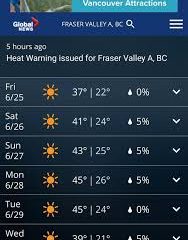Gabon vs Burundi: A Comparative Overview

Introduction
The comparison between Gabon and Burundi is significant as it highlights the diversity within African nations, each with unique cultures, economies, and political landscapes. Gabon, located on the west coast, is known for its oil wealth and rich biodiversity, while Burundi, a landlocked country in East Africa, grapples with historical conflicts and economic challenges. Understanding these differences can provide insights into the broader African context and aid in fostering collaboration and development.
Geography and Demographics
Gabon, with a population of approximately 2.3 million, spans an area of 267,668 square kilometers. It possesses a tropical climate with significant rainforest cover, making it rich in biodiversity. In contrast, Burundi covers 27,834 square kilometers and has a population of about 12 million. It is characterized by its hilly terrain and a temperate highland climate.
Economic Overview
Gabon’s economy heavily relies on oil exports, contributing around 80% of its revenue. This dependency has prompted both challenges and opportunities in terms of economic diversification. In recent years, Gabon has embarked on initiatives to promote tourism and sustainable practices in its vast national parks.
Conversely, Burundi is one of the poorest countries globally, often reliant on agriculture, which employs over 90% of its workforce. The economy faces challenges due to political instability and limited access to international markets. However, there have been efforts to promote coffee production, which is a vital export for the country.
Political Climate
The political environment in Gabon has seen relative stability, although it has faced criticism regarding governance and human rights issues. The current president, Ali Bongo Ondimba, has been in power since 2009, and his leadership has seen mixed responses from the populace.
Burundi, on the other hand, has experienced significant turmoil, particularly during the 2015 political crisis, which arose after President Pierre Nkurunziza announced he would run for a third term. This led to widespread protests and violence, deeply impacting the country’s socio-political landscape.
Conclusion
While Gabon and Burundi offer distinct contrasts in terms of geography, economy, and political stability, both nations embody the larger narrative of Africa’s evolution. Gabon’s oil-driven prosperity stands in stark contrast to Burundi’s agricultural struggles, yet both face pressures to reform and adapt to a changing global environment. As they navigate their respective challenges, the potential for collaboration and mutual growth remains a pivotal path for their futures.









